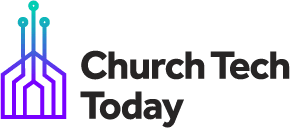Ministry intelligence helps leaders make strategic decisions, emphasizing the importance of a holistic approach to transform lives and steward congregations effectively.
As ministry leaders, we strive to be good stewards and pray for wisdom to improve our ministries, yet we often rely on limited metrics such as butts, budgets, baptisms, and buildings. While these provide some valuable information, ministry intelligence calls us to dig deeper to understand how people flourish as individuals, engaging in ministry and being equipped by our churches.
Ministry intelligence systematically collects, analyzes, and acts on various types of data (“wisdom”) to gain actionable insights that inform ministry decisions and strategy.
Examples of Ministry Intelligence
To begin, here are some examples of ministry intelligence:
- Conducting focus groups or interviews with new attendees to understand better what attracted them, their first impressions, and how they might suggest improvements. Their outside perspective is invaluable.
- Evaluating ministry-specific outcomes using metrics like lives impacted, communities changed, and justices addressed rather than just dollars or attendees. Captures transformative fruit.
- Tracking involvement through ministry area participation over time to gauge the depth of engagement across the congregation. Allows tailoring growth opportunities.
- Mapping the geographical distribution of attendees to analyze driving distance and neighborhood demographics. This can reveal underreached areas to focus outreach.
- Longitudinal surveys evaluating human flourishing (Barna and Harvard’s School of Human Flourishing) and/or spiritual growth by assessing biblical literacy, Scripture application, prayer lives, etc., over an extended timeframe signal discipleship efficacy.
Consider these examples as we uncover steps to move out of a metric mindset and into a ministry intelligence frame of mind.
Yes, A.I. Can Help: 17 Valuable Ways How Churches Can Utilize AI For Ministry Work
Analyzing and Quantifying Data for Ministry Intelligence
A key component of effective ministry intelligence is identifying what information to gather and assessing it meaningfully. In my experience as a church leader, our staff prayed weekly for submitted prayer requests but lacked specifics about recurring themes or changes over time. Implementing a basic categorization and documentation system enabled us to quantify the data (“wisdom”) longitudinally. Over two 3-month periods, we compared the frequency of requests within categories like marriage, health, and finances—the ability to analyze changes provided actionable insights about people's evolving needs.
Careful time-series analysis reveals trends and correlations that can inform more proactive ministry planning and alignment; an interesting element here is this is not contingent upon a preaching series or calendar; because of the patterns of these things, we did not need to change from expository to topical to cast vision for a program. We had all the insights we needed of what our people were going through to know what to offer. This slight adjustment shifted our team from reactive to proactive ministry, responding to emerging patterns.
Biblically, we see ministry intelligence principles evidenced early on. The Apostles implemented a system to address complaints that certain widows were being overlooked in the daily distribution of food (English Standard Version Bible, 2009, Acts 6:1-7). Rather than guessing at numbers, they had the congregation select seven Spirit-filled men to analyze needs and quantify resources. This example allowed the Apostles to steward resources more effectively, a model of being Spirit-led, Christ-centered, and data-informed. Jesus, the King, Priest, and Prophet, demonstrated strategic analysis when he instructed his disciples to survey nearby towns for receptive people and tailor their messaging approach accordingly (2009, Luke 10:1-16)—gathering contextual insights equipped them for more effective ministry.
Jesus strategically instructed his disciples to survey nearby towns for receptive people, tailoring their approach for more effective ministry. We can take a note from His methods and apply ministry intelligence principles in our… Click To Tweet
Acting on Results Discovered in the Data
Data (“Wisdom”) has little value unless it drives responsive action. Nothing will typically change if a single data (“wisdom”) point is used; when you stitch 2-3 data (“wisdom”) elements together, action is manifested on its own.
When our church realized that men who were millennials (under 35 years old at the time) were constantly submitting prayer requests for mentorship and leadership development, we immediately took action by offering up opportunities for this subset population to get involved in the things they cared about. Surprisingly, this did not require a preaching calendar change or large outreach effort. We had the wisdom we needed to make an informed decision. We needed to look at it correctly; we were praying over these requests but not allowing this wisdom to help guide our efforts of developing saints. When we offered this relevancy to this subset of individuals, they took full advantage of the programming and development.
Data is valuable when it leads to action. One piece of data might not make a big difference, but combining a few can lead to action—and potentially, transformation. Click To TweetNext, our church identified relational and financial stability as top concerns across all generations of our church; this came forward during February specifically, we developed ministry programming across various modalities (online, hybrid, in person) on stewardship in October and November before the expensive holiday season, versus our traditional model of December in our church when we would regularly preach, “Spend Less, Give More.” We increased people's buy-in, engagement, and financial flourishing by broadcasting the link between collected data (“wisdom”) from the prior year and implemented changes. This example highlights the importance of communicating key learnings and action plans so people feel that the church is relevant at specific times in most people's lives and that they are heard and understood. Closing the feedback loop from data (“wisdom”) to application is essential for efficacy and integrity.
In the early church, Peter acted decisively on the empirical evidence that non-Jewish believers had received the Holy Spirit just as Jewish Christians had. In response, he argued for their acceptance and initiated sweeping changes, expanding the boundaries of the church’s ministry (English Standard Version Bible, 2009, Acts 10:44-11:18). Similarly, the Council of Jerusalem analyzed testimonies of what God was doing among Gentiles. Then, they used these insights to guide the increasingly diverse church (2009, Acts 15:1-21). In both cases, responding to evidence was critical for facilitating growth.
More resources: 5 AI Tools We Like For Creating Church Graphics
Knowing People Better With Help From Ministry Intelligence
Fundamentally, ministry intelligence helps leaders better know and serve people. It enables more personalized, impactful ministry. Leaders must be discerning about collecting only immediately actionable data. However, dedicating resources pays dividends through tailored ministry opportunities.
Jesus demonstrated this personalization in his encounters with Nicodemus and the Samaritan Woman (English Standard Version Bible, 2009, John 3:1-21, 4:1-26). With the respected rabbi Nicodemus, Jesus had a nuanced, metaphor-rich dialogue about spiritual transformation suited to Nicodemus' understanding. In contrast, with a social outcast drawing water at a well, Jesus built trust through ordinary conversation before revealing his identity as Messiah. In both cases, Jesus tailored his language and concepts to match each person and context.
Similarly, Paul argues that he and his coworkers “became all things to all people,” adapting their style “by all means” to help people hear and respond to the Gospel (English Standard Version Bible, 2009, 1 Cor. 9:19-23). Ministry intelligence likewise helps us know people better in order to serve them best.

Conclusion
Over the past 20 years in ministry, serving some of the most influential churches in the U.S., I have witnessed the difficulty of moving success metrics from activities and outputs to meaningful outcomes and impact. It is tempting to focus on what is easy to measure – things like attendance or participation. Yet, as leadership and management expert Drucker established, “What gets measured gets managed” (Drucker, 2006). And true life transformation that changes lives is not instant but emerges over months and years.
Shifting to ministry intelligence requires patiently collecting quantitative and qualitative data (“wisdom”) to discern what activities happen and how their connection to God and community holistically impacts lives. It means looking beyond what is quick and convenient to assess, versus what represents the deeper heart-level outcomes we aim for as ministers of the Gospel. As the writer of Hebrews exhorted, “Keep your eyes on Jesus, who both began and finished this race we're in. Study how he did it. Because he never lost sight of where he was headed” (Peterson, 2017, Hebrews 12:2).
This perception shift is challenging but necessary to steward our congregations well. In summary, implementing ministry intelligence calls for leaders to move beyond basic metrics to more strategic collection, assessment, and application of information for the sake of their congregation. Both principle and biblical precedent confirm that this careful analysis is invaluable for personalizing ministry to transform lives.
Keep working to improve communication and ministry effectiveness. Read If You Agree With Carey Nieuwhof, Here Are 7 Digital Ministry Trend Implications You Must Consider For 2024.




